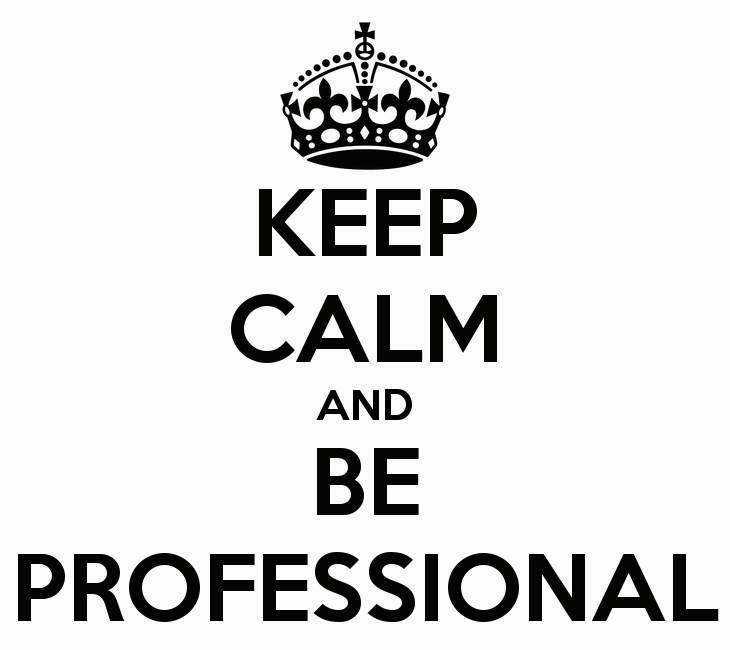 I’ve worked on high functioning teams, dysfunctional teams, teams of people who absolutely hated each other, teams where everyone loved each other, and I think I’ve zeroed in on one trait that anyone can look for in a team that will tell you how productive and successful they’re going to be.
I’ve worked on high functioning teams, dysfunctional teams, teams of people who absolutely hated each other, teams where everyone loved each other, and I think I’ve zeroed in on one trait that anyone can look for in a team that will tell you how productive and successful they’re going to be.
Before I do this, I’m going to tell a small sports story.
I played at a pretty high level (amateur) when I was younger, and I played with this one guy (lets call him Dick) who was a brilliant player, with a nasty habit of berating players every time they made a mistake. The thing I noticed was that, sometimes players wouldn’t even make a mistake, they’d just do something that he didn’t think they should do, and he’d immediately get on them. Even worse, sometimes he’d make a mistake and blame someone else.
Miscontrolled a ball? “That was a Shit pass!” he’d yell.
Gave the ball away in a bad area of the field? “Why weren’t you covering that guy?!”
If they ignored him, he’d just keep sniping at them or refuse to pass to them in the game/practice. People didn’t really enjoy playing with this guy at all. He was very good though, so you’d just have to suck it up and try to play with the negativity, which is very tough for younger/developing players who were short on confidence sometimes.
There was another player, (lets call him Wayne), who was actually even better than this guy, but it wasn’t apparent because he did a lot of “dirty work”, unglamorous stuff. He rarely did fancy moves, or tried things that made you go “wow” or look around for an ESPN filming crew. But the guy was steady, technically brilliant, rarely made mistakes (which you start to realize is very hard to do at a high level). If you were in trouble, say surrounded by 2 guys and were about to lose the ball, you could knock the ball to his general direction and it didn’t matter how much pressure he was under or how crap the ball you played to him (look up “hospital pass”), he’d pick it up and find a way out. It was amazing.
Want to know the awesome thing about this guy? he never blamed people for anything!
It was actually kind of weird.
If you made a mistake he’d yell
“Don’t worry about it, just recover, go get it back!”,
If you played a bad pass, he’d say
“Go on … go make sure they make the mistake now … win it back!”.
If you missed the shot, even if it was from 2 yards out with an empty goal, he’d say
“Unlucky. You’ll get the next one!”
He’d constantly yell encouragements …
“Awesome pass John”
“Holy crap look at Ronaldo over here!”
“What a shot … more of that!”
He was everywhere … always looking for a way to help out. If he was better positioned, he’d tell you where to play the pass. If you were hesitant about what to do, he’d yell out
“hit it” … or “touch that off to Mike” … and if you did something different, he’d wouldn’t skip a beat
“ohhh … even better. love that pass!”
then he’d be off to get open for the next guy.
And it was infectious … because he gave you encouragement, you weren’t afraid to make mistakes, and because nobody else was really as good as this guy, you realized that you really couldn’t get on somebody about how crap they were playing, because at some point in the game you’d probably do something pretty stupid. A side effect of this is that everyone started to play for everyone else, because there was no real thing as a “mistake”, everyone just knew to cover for everyone else, even Dick.
So if your man blew by you, somebody else would step up and mark the loose guy, someone else would take his guy, etc etc, and you could just go find an open guy and mark him. Everybody covered for everyone else … it became part of the game, part of the team DNA … and it was a very good team indeed.
I bet by now you know what that trait is in teams I’ve seen that predicts how well they work together. There is no fear of failure.
If you get some bad code into production, you don’t get thrown under the bus, or get walked into a small room with fluorescent lights to get reamed by your boss, instead people swarm around and try to help you, and you do the same when someone else makes a mistake, or misses a deadline. The culture of blame is non-existent, so people fix problems, not the blame. If a deadline was missed, then the team didn’t make a good estimate NOT that Kathy is a shitty engineer.
This is very important to note, because most corporate environments, for whatever reason, seem to embrace a culture of blame. If something goes wrong, everyone wants to know who’s at fault.
“yeah Mike wrote that code 2 weeks ago, we told him not to push it live, but he did it anyway, this is what happens.” … usually followed by a self righteous sigh.
People point fingers quickly, because a culture of blame stems from a culture of fear. Fear of failure, fear of not living up to “high standards” … fear of not being an “A player”. If someone else is to blame for something, then you can still stay secure in your illusion of awesomeness, or maybe you are really fantastic and all your shitty co-workers are just bringing you down, or maybe nobody will listen to your brilliant ideas, so this is what they get.
Now does this mean that you should constantly cover for and try to baby along players who can’t hack it at the level of everyone else? Absolutely not.
On the soccer team I was on, you had to meet a certain (high) standard to make the squad … if you weren’t good enough you simply wouldn’t make the team … simple.You had to have a particular skill level to play, but once you were in, you were one of us, and we’d work our socks off for you, just like we’d work our socks off for Lionel Messi if he chose to join (look him up, he’s only the best player in the world). Its the same way on the great teams I worked with.
Teams that work well together don’t fear failure, High functioning teams that work well together, have amazingly talented and driven people working together for each other who don’t fear failure. They embrace it.
They can do this because they have great team players, men and women who constantly work for each other, push each other, encourage each other, and pick up the slack when somebody falls down or trips up, without even thinking about it. Great teams are stacked with people who say
“What can I do to help”
instead of
“I’ve done my job”
You know … quintessential team players. The real tell-tale sign of a great team.
Being that person that makes everybody else great, isn’t that hard. It’s all about being like Wayne, performing at your best, being a pro no matter what and adopting an attitude that there is no real mistake, because you’re going to cover for your teammate, and trusting that they’re going to cover for you.
It really is that simple.


